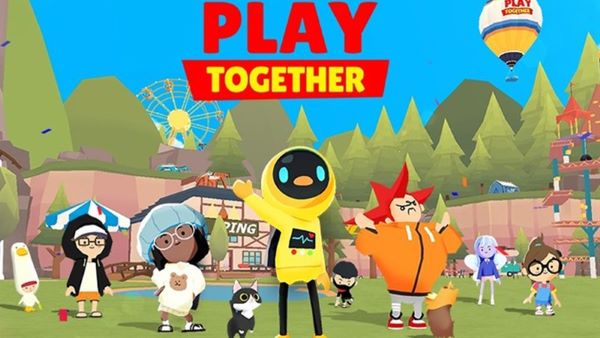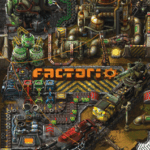Advertisement
Popular Now
Since its launch in 2006, Roblox has evolved from a simple platform for game creation into a massive online community where millions of players engage in a wide variety of user-generated experiences. With its unique blend of social interaction, creativity, and gaming, Roblox has become a cultural phenomenon, especially among younger audiences. However, one of the most pressing issues surrounding the platform is its monetization strategy, particularly how the use of in-game currency, Robux, impacts the player experience and the overall game ecosystem.
This article will explore the complexities of Roblox's monetization system, the implications for developers and players, and the ongoing debate about accessibility and fairness in a platform designed for creativity and collaboration.
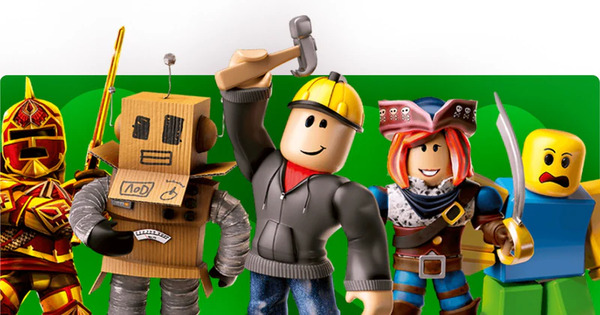 Roblox was designed to be a platform that enables users to create their own games and experiences[/caption]
In the early days, Roblox’s monetization model was simple. Players could purchase Robux, the platform's virtual currency, which they could use to buy in-game items, avatar accessories, and game passes. This allowed developers to monetize their creations, albeit in a limited way. As the platform grew, so did the potential for developers to earn significant income, leading to a wave of creativity and innovation.
Roblox was designed to be a platform that enables users to create their own games and experiences[/caption]
In the early days, Roblox’s monetization model was simple. Players could purchase Robux, the platform's virtual currency, which they could use to buy in-game items, avatar accessories, and game passes. This allowed developers to monetize their creations, albeit in a limited way. As the platform grew, so did the potential for developers to earn significant income, leading to a wave of creativity and innovation.
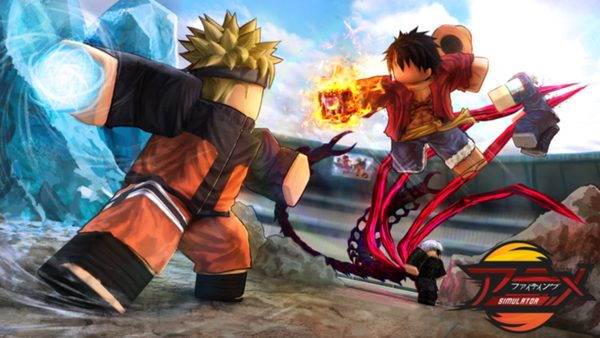 For instance, a game might offer a game pass that allows players to level up faster or unlock exclusive areas[/caption]
Additionally, the presence of microtransactions within Roblox can sometimes lead to a less cohesive gaming experience. Players may feel pressured to spend money to keep up with others or to fully enjoy a game. This pressure can be detrimental to the overall experience, especially for younger audiences who may not fully understand the implications of spending money in a virtual environment.
For instance, a game might offer a game pass that allows players to level up faster or unlock exclusive areas[/caption]
Additionally, the presence of microtransactions within Roblox can sometimes lead to a less cohesive gaming experience. Players may feel pressured to spend money to keep up with others or to fully enjoy a game. This pressure can be detrimental to the overall experience, especially for younger audiences who may not fully understand the implications of spending money in a virtual environment.
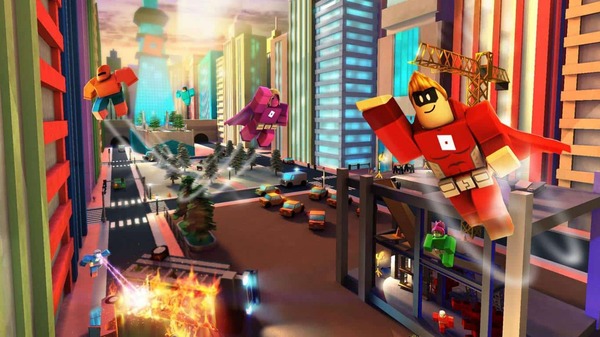 As the gaming industry evolves, Roblox has the potential to lead the way in creating a balanced ecosystem[/caption]
As the gaming industry evolves, Roblox has the potential to lead the way in creating a balanced ecosystem[/caption]
The Rise of Roblox: A Platform for Creativity
Roblox was designed to be a platform that enables users to create their own games and experiences. Unlike traditional gaming platforms, Roblox empowers users to become creators, offering tools to design games, build worlds, and script interactive elements. This model of user-generated content (UGC) has attracted millions of players, fostering a vibrant community that thrives on creativity. [caption id="attachment_1640" align="aligncenter" width="600"] Roblox was designed to be a platform that enables users to create their own games and experiences[/caption]
In the early days, Roblox’s monetization model was simple. Players could purchase Robux, the platform's virtual currency, which they could use to buy in-game items, avatar accessories, and game passes. This allowed developers to monetize their creations, albeit in a limited way. As the platform grew, so did the potential for developers to earn significant income, leading to a wave of creativity and innovation.
Roblox was designed to be a platform that enables users to create their own games and experiences[/caption]
In the early days, Roblox’s monetization model was simple. Players could purchase Robux, the platform's virtual currency, which they could use to buy in-game items, avatar accessories, and game passes. This allowed developers to monetize their creations, albeit in a limited way. As the platform grew, so did the potential for developers to earn significant income, leading to a wave of creativity and innovation.
The Introduction of Robux: A New Economy
As Roblox's user base expanded, the introduction of Robux fundamentally changed the platform's economy. Players could buy Robux using real money, which they then spent on various items within the game. This monetization strategy opened the door for developers to earn money based on the popularity of their games. Robux allowed for a marketplace where players could purchase unique items and experiences. Developers could sell game passes that granted special abilities or access to exclusive content. This encouraged creators to invest time and resources into their games, knowing they could potentially earn revenue. However, this system also created disparities among players. Those who could afford to spend real money on Robux often had advantages over those who couldn't, raising concerns about fairness and accessibility.The Developer Dilemma: Monetizing Creativity
For developers on Roblox, the opportunity to earn money can be both a blessing and a curse. While the potential for financial success is enticing, the pressure to monetize can lead to compromises in game design. Developers may prioritize profit over player experience, creating games that encourage spending rather than engaging gameplay. This monetization model has led to a phenomenon known as "pay-to-win" mechanics. Some games offer significant advantages to players who spend money, while free players are left at a disadvantage. For instance, certain games allow players to buy powerful items or abilities with Robux, creating a divide between paying and non-paying players. The challenge for developers is to strike a balance between earning revenue and creating enjoyable experiences. Many successful games manage to provide valuable content without relying on pay-to-win mechanics, but this requires careful planning and an understanding of player expectations.Roblox’s Marketplace: A Double-Edged Sword
Roblox features a marketplace where players can buy, sell, and trade virtual items. This marketplace has become a crucial aspect of the platform’s economy, allowing creators to monetize their work while giving players the chance to customize their avatars and enhance their gaming experience. However, it has also led to unintended consequences. One issue is the prevalence of item reselling and trading. Players can purchase limited edition items or rare virtual goods, only to resell them at inflated prices. This creates an environment where a small number of players can amass wealth by investing in virtual goods, further widening the gap between players. For those who cannot afford to spend large sums of money, accessing these exclusive items can be frustrating. Furthermore, the marketplace can encourage a focus on cosmetic items over game quality. Developers may prioritize creating trendy accessories to sell instead of investing in game mechanics or storytelling. While cosmetic items can enhance the player experience, they should not overshadow the core gameplay.The Role of Game Passes and Microtransactions
Game passes are another way developers can monetize their games. These passes allow players to access special features or enhancements for a one-time fee. While game passes can enhance the gaming experience and offer value to players, they can also lead to imbalance in gameplay. For instance, a game might offer a game pass that allows players to level up faster or unlock exclusive areas. While this can be enticing, it raises questions about the fairness of gameplay. Players who purchase game passes may progress more quickly, leaving free players behind. This can create frustration and diminish the enjoyment of those who cannot afford to pay. [caption id="attachment_1641" align="aligncenter" width="600"] For instance, a game might offer a game pass that allows players to level up faster or unlock exclusive areas[/caption]
Additionally, the presence of microtransactions within Roblox can sometimes lead to a less cohesive gaming experience. Players may feel pressured to spend money to keep up with others or to fully enjoy a game. This pressure can be detrimental to the overall experience, especially for younger audiences who may not fully understand the implications of spending money in a virtual environment.
For instance, a game might offer a game pass that allows players to level up faster or unlock exclusive areas[/caption]
Additionally, the presence of microtransactions within Roblox can sometimes lead to a less cohesive gaming experience. Players may feel pressured to spend money to keep up with others or to fully enjoy a game. This pressure can be detrimental to the overall experience, especially for younger audiences who may not fully understand the implications of spending money in a virtual environment.
The Community’s Response: Feedback and Adaptation
As the issues surrounding monetization in Roblox became more pronounced, the community began voicing its concerns. Players, parents, and even developers expressed their thoughts on the impact of monetization on the gaming experience. The feedback from the community has played a crucial role in shaping how Roblox approaches its monetization strategies. Roblox has responded to community concerns by implementing changes aimed at improving player experience. For example, they have introduced various ways to earn Robux without spending real money, such as participating in the Roblox Developer Exchange program. This allows developers to convert Robux earned from their games into real-world currency, providing an incentive for creators to focus on quality and player engagement. Furthermore, Roblox has made efforts to promote transparency regarding in-game purchases. They have enhanced parental controls, allowing parents to manage their children’s spending. This is particularly important given the platform’s younger audience. By addressing concerns about spending and game balance, Roblox aims to foster a healthier gaming environment.Balancing Accessibility and Profitability
As Roblox continues to grow, the challenge of balancing accessibility and profitability remains a focal point. While developers need to monetize their creations, ensuring that all players have an enjoyable experience is paramount. Striking this balance is essential for maintaining a thriving community. One approach to achieving this balance is for developers to create games that are inherently fun and engaging without relying heavily on monetization. By offering a compelling gameplay experience, developers can attract players who are willing to spend money voluntarily, rather than feeling pressured to do so. Successful games often find ways to monetize that feel organic and do not detract from the enjoyment of the core experience. Additionally, Roblox can further refine its monetization strategies to minimize disparities between paying and non-paying players. Implementing systems that reward engagement and creativity rather than financial investment can help level the playing field and enhance the overall experience.The Future of Roblox: Innovation and Evolution
Looking ahead, the future of Roblox hinges on its ability to adapt to changing player expectations and the evolving landscape of gaming. As more players join the platform, Roblox must continue to innovate and provide a safe and enjoyable environment for everyone. The platform's focus on user-generated content will remain a cornerstone of its identity. By empowering players to create and share their experiences, Roblox can foster a sense of community that encourages collaboration and creativity. However, this must be accompanied by a commitment to fair monetization practices that support developers while ensuring accessibility for all players. As the gaming industry evolves, Roblox has the potential to lead the way in creating a balanced ecosystem that prioritizes player experience alongside developer success. By addressing the challenges posed by its monetization model, Roblox can set a precedent for future gaming platforms and reinforce its status as a leader in user-generated content. [caption id="attachment_1642" align="aligncenter" width="600"] As the gaming industry evolves, Roblox has the potential to lead the way in creating a balanced ecosystem[/caption]
As the gaming industry evolves, Roblox has the potential to lead the way in creating a balanced ecosystem[/caption]













